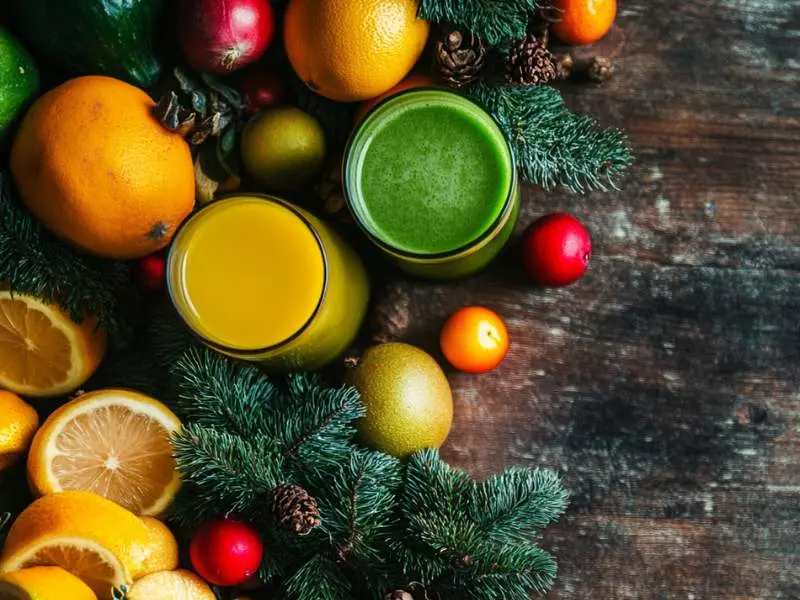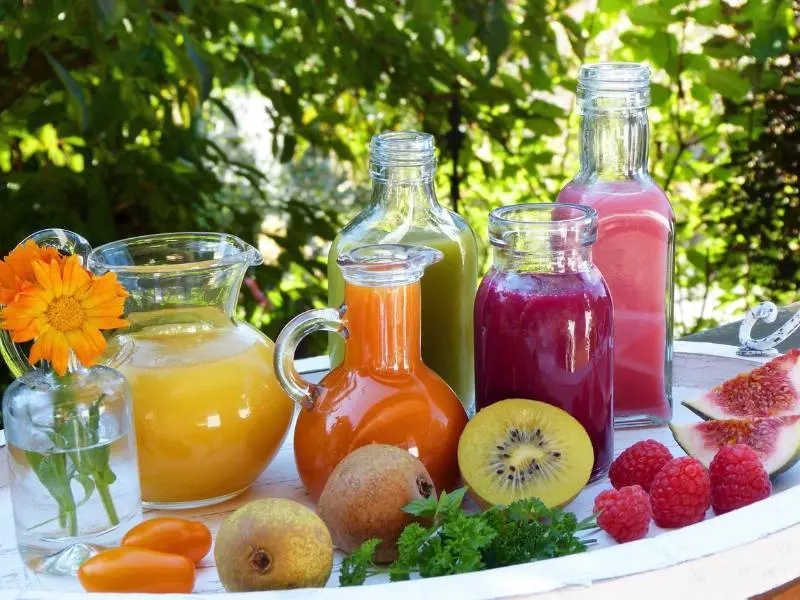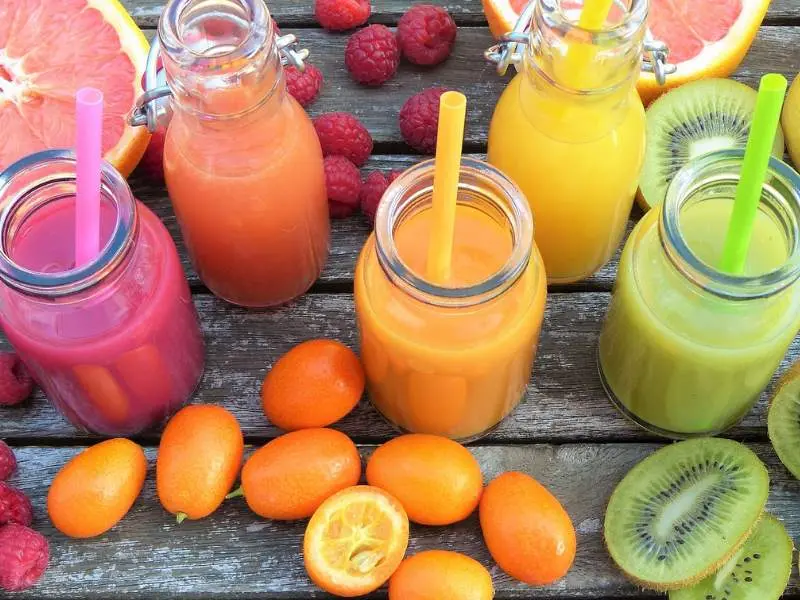
Losing weight can be a tricky journey, and there are countless methods people swear by. Among them, juicing has gained significant traction as a go-to weight-loss strategy. But is juicing a good way to lose weight? Advocates claim it delivers quick results, detoxifies the body, and boosts nutrition. However, critics highlight its limitations, such as lack of fiber and potential nutrient imbalances. This article explores the science, benefits, risks, and expert opinions surrounding juicing for weight loss, offering practical tips to help you decide if it’s the right approach for your goals.
Let’s start by understanding what juicing is and why it has become a popular weight-loss trend.
Understanding Juicing and Its Popularity
What is Juicing and How Does It Work for Weight Loss?
Juicing is the process of extracting liquid from fruits and vegetables, leaving behind the fibrous pulp. The resulting juice is often consumed as a refreshing beverage or meal replacement. There are various juicing techniques, including cold-pressed juicing, which uses hydraulic pressure to extract juice without heat, and centrifugal juicing, which employs fast-spinning blades.
People usually choose ingredients like spinach, kale, celery, carrots, and apples for their nutrient-rich properties. Some even add ginger or turmeric for their anti-inflammatory benefits. The combination possibilities are virtually endless, which makes juicing an adaptable and versatile option.
Why Juicing Became Popular for Weight Loss
Juicing exploded in popularity largely due to celebrity endorsements and the perception that it’s a quick fix for weight loss. Who wouldn’t want to sip their way to a leaner body? Media campaigns and detox fads have also fueled the belief that juicing can “cleanse” your system and help you shed pounds quickly.
Its appeal lies in simplicity—there’s no need to prepare elaborate meals. Plus, it’s marketed as an efficient way to consume more fruits and vegetables. For those who struggle with incorporating produce into their diet, juicing feels like a one-stop solution.
However, as with most trends, it’s important to dig deeper and assess whether the benefits outweigh the potential downsides. In the next section, we’ll explore the scientific foundations of juicing and its actual impact on weight loss.
The Science Behind Juicing and Weight Loss
Does Juicing Lead to Calorie Deficits?
When it comes to weight loss, creating a calorie deficit—burning more calories than you consume—is the golden rule. Juicing can help achieve this by replacing high-calorie meals with lower-calorie drinks. For example, a juice made from kale, spinach, cucumber, and lemon often contains fewer calories than a full meal.
However, there’s a catch. While juices are low in calories, they can also lack the protein and fiber necessary to keep you feeling full. Without these key components, hunger may strike sooner, leading to snacking or overeating later. So, is juicing a good way to lose weight? It might help short-term, but sustaining this deficit without proper planning can be tricky.
Nutritional Value of Juices: Benefits and Drawbacks
Juices are nutrient powerhouses, delivering high doses of vitamins and minerals. Ingredients like carrots and oranges provide vitamin C and beta-carotene, while leafy greens are packed with iron and magnesium. This nutrient boost is especially beneficial for individuals with deficiencies.
On the flip side, juicing removes fiber, an essential nutrient for digestion and satiety. Fiber slows the absorption of sugar, which helps stabilize blood sugar levels. Without it, your body absorbs the sugars in juice quickly, potentially leading to energy crashes or increased cravings.
Another concern is sugar content. Many fruit-based juices, while delicious, can contain as much sugar as sodas. Consuming these regularly could hinder weight loss goals.
Short-Term vs. Long-Term Weight Loss Effects
Juicing often results in rapid weight loss during the first few days or weeks. But here’s the kicker—it’s usually water weight, not fat. The body sheds water as it depletes glycogen stores during calorie restriction.

Over time, relying solely on juicing for weight loss might slow your metabolism. This happens because your body may adjust to the lower calorie intake, making it harder to lose weight later. For lasting results, it’s crucial to combine juicing with sustainable dietary changes.
Pros and Cons of Juicing for Weight Loss
Benefits of Juicing
Juicing offers some undeniable benefits, especially for weight loss beginners. First, it’s an easy way to increase your intake of fruits and vegetables, which are rich in antioxidants and vital nutrients. For individuals who dislike eating vegetables, drinking them may be more appealing.
Another advantage is convenience. Busy lifestyles often lead to skipped meals or unhealthy food choices. Juicing provides a quick, portable option that’s easy to prepare and consume on the go.
Lastly, juicing might inspire healthier habits. Many people find that starting with a juice cleanse motivates them to adopt a more nutritious diet overall.
Drawbacks of Juicing
Despite its appeal, juicing isn’t without flaws. One of the biggest downsides is its lack of protein and fats, which are essential for a balanced diet. These nutrients help maintain energy levels, build muscle, and promote satiety. Without them, you might feel tired or constantly hungry.
Another issue is the high sugar content of many juices, particularly those made from fruits like pineapple or mango. While natural sugars are better than processed ones, consuming too much can spike blood sugar levels and interfere with fat loss.
Lastly, juicing can be expensive. Cold-pressed juices or high-quality ingredients often come with a hefty price tag. This might not be feasible for everyone, especially over the long term.
By understanding both the science and the pros and cons of juicing, it becomes clear that while juicing has its benefits, it’s not a perfect weight-loss solution. The question remains: Is juicing a good way to lose weight? It can be, but only when paired with a balanced approach to nutrition and lifestyle.
Expert Opinions on Juicing for Weight Loss
What Doctors and Nutritionists Say
Health experts often emphasize that while juicing can have short-term benefits, it may not be the best standalone solution for long-term weight loss. According to nutritionists, juicing lacks vital macronutrients like protein and healthy fats, which are essential for overall health and energy. Dr. Marie Taylor, a registered dietitian, states, “Juices can be a great addition to your diet, but they shouldn’t replace balanced meals.”
Medical professionals also warn against using juicing as a crash diet. Rapid weight loss might occur initially, but it’s usually water weight. Over time, relying on juice-only diets can lead to nutrient deficiencies, fatigue, and muscle loss, which may hinder weight management efforts. So, is juicing a good way to lose weight? Experts suggest combining juicing with other healthy habits for sustainable results.
Key Scientific Studies and Findings
Research on juicing for weight loss reveals mixed outcomes. A study published in the Journal of Nutrition and Metabolism highlighted that while participants on a juice cleanse lost weight, most regained it quickly after resuming normal diets. This rebound effect is common with restrictive eating plans.
Another study showed that incorporating juice into a balanced diet can enhance nutrient intake without compromising satiety. The key takeaway? Juicing works best as a supplement to, not a replacement for, well-rounded meals.
For recipe inspiration, consider exploring the 7 Best Juicing Recipes for Weight Loss on Pacific Recipes.
Alternative Approaches to Weight Loss Using Juicing
Blending vs. Juicing: Which is Better?
While juicing removes pulp and fiber, blending retains these components, making smoothies a more filling alternative. Blended drinks also provide the same vitamins and antioxidants as juices but with added benefits like improved digestion and stabilized blood sugar levels.
For weight loss, blending might be the better choice. The fiber in smoothies helps you stay full longer, reducing the temptation to snack between meals. On the other hand, juicing can still be valuable for quick nutrient absorption, especially after workouts.
Incorporating Juices into a Balanced Diet

Juices don’t have to stand alone. Pairing them with protein-rich snacks like nuts or yogurt can help balance your meals. Consider consuming juices in the morning or as a mid-afternoon pick-me-up to keep energy levels stable. According to the U.S. Department of Agriculture’s MyPlate guidelines (ChooseMyPlate.gov), combining fruits and vegetables with proteins and healthy fats ensures a well-rounded diet, supporting overall health and sustainable weight loss.
By blending expert opinions and practical strategies, it’s clear that juicing isn’t a magic bullet for weight loss. However, when combined with other healthy habits, it can be an effective part of a sustainable weight-loss plan.
FAQs About Juicing and Weight Loss
Can You Lose Weight Permanently with Juicing?
Many people wonder, is juicing a good way to lose weight for the long term? The answer depends on how it’s used. Juicing alone isn’t a sustainable solution. While it can help with quick, initial weight loss, it doesn’t teach healthy eating habits or provide all the nutrients your body needs. To maintain weight loss, juices should complement a balanced diet, not replace it.
What Are the Best Ingredients for Weight-Loss Juices?
The best juices for weight loss include ingredients that are low in sugar but high in nutrients. Leafy greens like kale and spinach are fantastic options, as they’re rich in vitamins and antioxidants. Adding cucumbers and celery can boost hydration while keeping calorie counts low. For a hint of sweetness, try green apples or a squeeze of lemon. Avoid juices heavy in high-sugar fruits like mango or pineapple, as they can counteract your efforts.
Are There Any Risks Associated with Juicing?
Juicing isn’t risk-free. A diet too reliant on juices might lead to nutrient deficiencies, low energy levels, or even digestive issues due to the lack of fiber. Plus, juices high in natural sugars can cause spikes in blood sugar, potentially impacting metabolism. To minimize risks, use juicing as a supplement to whole foods rather than a full diet replacement.
How Often Should I Juice for Weight Loss?
There’s no universal rule, but moderation is key. Incorporating one juice a day as part of a broader, nutrient-rich diet is generally safe and beneficial. Using juicing as an occasional detox rather than a daily meal substitute can help balance its benefits with your body’s needs.
Can Juicing Be Combined with Exercise for Better Results?
Yes, juicing can complement exercise and enhance weight-loss efforts. If you’re wondering, is juicing a good way to lose weight when paired with fitness, the answer is yes—if done right. Juices provide quick energy and vital nutrients for recovery, especially with ingredients like beetroot or spinach. However, they lack protein, which is essential for muscle repair. To maximize results, pair your juice with a protein-rich snack or blend the ingredients to retain fiber. A balanced approach combining exercise, juicing, and whole foods is the most effective way to achieve sustainable weight-loss results.
What’s the Difference Between Juicing and Detoxing?
Juicing and detoxing are different but often overlap. Juicing extracts nutrients from fruits and vegetables, creating nutrient-rich drinks, while detoxing focuses on eliminating processed foods and toxins. Is juicing a good way to lose weight during detoxing? It can be, but not if you rely on juices alone. Juicing supports detox by providing essential vitamins but should be paired with whole foods for balance. Extreme detoxes that replace meals with juices can lead to fatigue and nutrient deficiencies. For a healthy detox, use juices to supplement a clean, well-rounded diet instead of replacing meals entirely.
Conclusion
So, is juicing a good way to lose weight? The verdict is clear: juicing can be a helpful tool, but it’s not a one-size-fits-all solution. While juices are packed with vitamins and can support initial weight loss, they lack the essential nutrients for long-term health. Sustainable weight loss requires a balanced approach that includes whole foods, exercise, and mindful eating habits.
Juicing works best when it’s part of a broader strategy. Think of it as a way to add variety to your diet or boost your nutrient intake, not as the foundation of your eating plan. By combining juicing with other healthy habits, you’ll be better positioned to reach your goals and maintain your progress over time.
